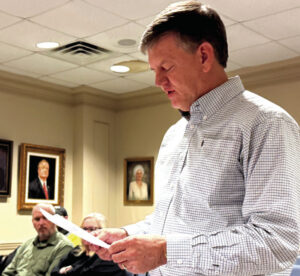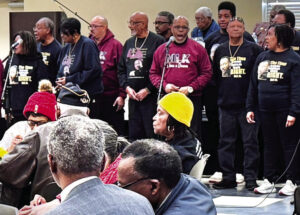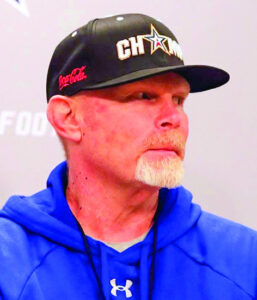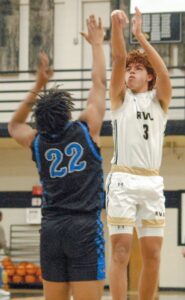Union's role in Alabama politics
By Staff
Steve Flowers
Guest Columnist
As we approach Labor Day I am reminded of the prominence that organized labor played in Alabama politics in bygone years.
After World War II, Alabama surged into the world economy and became the home to many of the largest and most important industries in the booming U.S. economy.
Young men who were born and raised tilling Alabama's hard scrabble soil, while trudging behind a mule all day on a 40 acre farm, had seen the world during the war and wanted a better life than their fathers.
They saw such opportunity in the new industrial plants emerging in the state.
These young men went a step further than their contemporaries throughout the south and made all of these industries unionized.
It was so pervasive that Alabama became overwhelmingly the most unionized state in the south. A roll call of the state's largest employers reveals that all of them were unionized from the TVA workers of north Alabama to the state docks in Mobile. Alabama was a pro labor state.
The steel mills in Birmingham, the tire manufacturing plants in Gadsden, Tuscaloosa and Opelika, Reynolds Aluminum in the Tri-Cities, along with the state dockworkers were all union.
There was essentially no Republican Party, the Democratic nomination was tantamount to election and the union endorsement was vital.
It elected Big Jim Folsom in 1946 and again in 1954. So what about the union endorsement in next year's governor's race?
Is it still important?
The answer is a resounding "no."
The state has changed and the world economy has changed. The major industrial plants in the state are now the large international automobile plants, Mercedes, Honda and Hyundai. They, and their subsidiary spin-off plants, are all non-union. It is a new day.
The labor endorsement is sought and good to have in a Democratic primary. Union members are loyal Democrats.
Of the minority of white Alabamians who choose to vote in the Democratic primary, a good many are labor union voters. The flight of the vast majority of white Alabamians to the Republican ranks over the past few decades has rendered the union endorsement as a minimal advantage.
Some would even say it is a disadvantage in a general election because it has a perception as being a liberal endorsement.
The union endorsement is not the only endorsement that has seen a demise over the years.
All group endorsements have lost their clout. The once important endorsement from Joe Reed and the Alabama Democratic Conference has waned.
The New South endorsement outnumbers the ADC in importance among black voters. Its strength rests primarily in the rural counties of the Black Belt.
All three of these Democratic groups, Labor, ADC and New South are worthwhile in a Democratic primary but are usually an albatross in a general election. The Republican candidate will attempt to tie his Democratic opponent to these groups and label the Democratic recipient a liberal beholden to a liberal group.
Historically, an endorsement from a perceived popular politician endorsing someone else has not worked in Alabama politics.
In fact, it usually boomerangs and hurts the recipient.
Alabama voters are independent and have always resented someone telling them how to vote.
George Wallace in his heyday could not transfer his popularity to other candidates. Every time he endorsed someone it was the kiss of death. The candidate always lost.
The exception to that would be in 1966 when Wallace campaigned against a group of state senators who had failed to vote for his plan to change the state constitution so that he could succeed himself. He beat all but one of them. The difference was that he was against them and not for their opponent.
Wallace would often say, and history proves him accurate, that more people vote against someone than for someone. That is why he always ran against something.
When segregation wore out he ran against the power company or some corporate Big Mule.
Big Jim knew this truism too. He always ran against the Big Mules and the Got Rocks. They both knew what they were doing.
Big Jim also knew what he was doing in 1946 when he campaigned in his size 17 army boots and stomped by every union hall and labor rally seeking that endorsement.
Labor was king in Alabama in the 1940's and 50's. Race became the issue in the 1960's and, although Wallace did not always get the Labor endorsement, the rank and file Alabama union worker broke ranks and voted for him.
Happy Labor Day.
Steve Flowers is Alabama's leading political columnist. His column appears weekly in 70 Alabama newspapers. Steve served 16 years in the State Legislature. He may be contacted at www.steveflowers.us.






